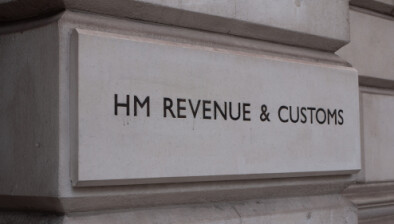CIOT: New Finance Bill means 24 new taxes since 2000

John Cullinane
The new Finance Bill published yesterday introduces three new taxes, taking the total number of taxes introduced this century to 24.
Apart from two one-off levies, and the Health and Social Care Levy (which was repealed before it came into effect, and is not included in the total above), none of these or any other taxes have been abolished over this period.
Two of the three new taxes in the new Finance Bill are to implement the G20-OECD Pillar 2 framework in the UK, putting in place a global minimum rate of corporation tax:
- A multinational top-up tax which will require large UK headquartered multinational groups to pay a top-up tax where their operations in a foreign jurisdiction have an effective tax rate of less than 15%.
- A supplementary domestic top-up tax which will require large groups, including those operating exclusively in the UK, to pay a top-up tax where their UK operations have an effective tax rate of less than 15%.
Additionally the Bill contains legislation for an Electricity Generator Levy – a 45% charge applying from 1 Jan 2023 to exceptional electricity generation receipts arising from non-fossil fuel sources to corporate groups with more than 50,000 MWh of in-scope generation per annum.
Other measures in the Finance Bill include:
- Capital allowances (temporary full expensing)
- Changes to R&D tax reliefs (expanding what qualifies and requiring pre-notification)
- Removing the pensions Lifetime Allowance charge
- Top-up payments to low income individuals saving into a net pay pension scheme
- Simplification to how income tax applies to trusts, estates and their beneficiaries
- Changes to CGT rules that apply to transfers of assets between separating spouses and civil partners
- A new duty structure for alcoholic products
- Tax breaks for Investment Zones
- Removal of a taxpayer’s ability to legally assign to a third party their income tax repayment
- Preventing non-UK charities from accessing charitable tax reliefs
- Abolition of the Office of Tax Simplification
At 478 pages the Bill is the longest Finance Bill since 2017. The lengthiest measures in the Bill are the two new ‘top-up taxes’ (168 pages between them) and the new alcohol duty regime (66 pages).
Regarding the new taxes, John Cullinane, director of public policy at the Chartered Institute of Taxation (CIOT), said: “Since the turn of the century governments of all political complexions have been adding new taxes to the statute book at an average of one a year – and it’s getting faster. This is a one way conveyor belt – they have not got rid of any non-temporary taxes this century.
“Most of the taxes introduced in the last decade – or planned for the year ahead – are niche levies that will be paid only by a small number of large businesses, so it would not be accurate to say they complicate the tax system for the average taxpayer. However they still add to the length of the tax code, and the work of administering them adds to the pressure on HMRC’s already stretched resources.
“In some cases, it may be that a new tax was the best way to raise the revenue required or achieve the objectives set. It seems unlikely that this held true for all of them.”
Commenting on measures in the Finance Bill relating to tax simplification, John Barnett, chair of the CIOT’s Technical Policy and Oversight Committee, said: “There are some useful simplification measures in the Bill, such as changes to how income tax applies to trusts, estates and their beneficiaries, and a simpler regime for alcohol duties.
“However the abolition of the Office of Tax Simplification is a backwards step. The OTS has been the source of many good ideas for simplifications over the past 12 years. There is a risk that without the OTS to hold the Government’s feet to the fire any momentum behind simplifying the tax system will disappear.”







